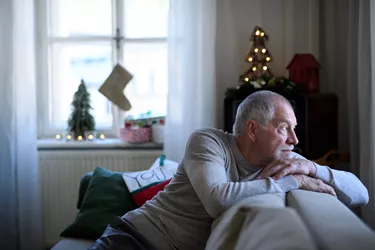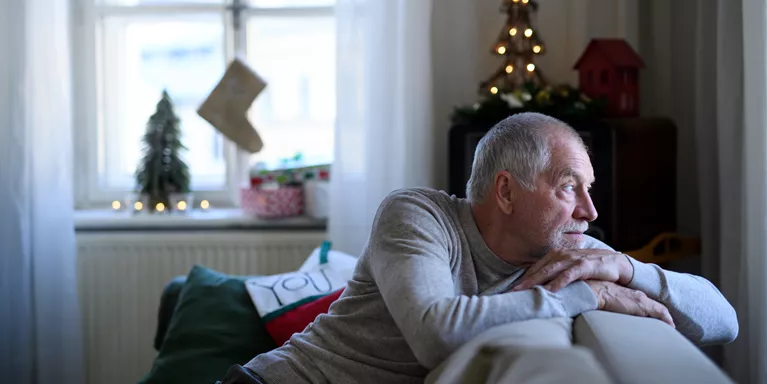The night I spent in a cell
Claire blogs about why a police cell was the last place she needed to be during a mental health crisis
It was a Friday night in January and I was sat in a police cell with a blanket wrapped around my shoulders, my shoes sitting outside the door and my belongings locked away. Was I caught stealing? No. Drunk and disorderly? No. I was in a mental health crisis and a risk to myself and only myself. There was no reason for me to be sat in a cold, dingy cell other than lack of hospital beds and 'places of safety'.
In the weeks leading up to this night my mental health had been deteriorating. I had been to see my GP and mental health services several times but no one was hearing me, no one was taking what I was saying seriously. I felt that I had exhausted all options and the only thing left for me was suicide. The police picked me up and detained me under Section 136 of the Mental Health Act. After making many phone calls the police were left with no choice but to take me to the police station after being told that there was nowhere available for me to go. I must stress that I was willing to go into hospital, I was compliant and very quiet. Other than needing a place of safety, I did not need to be taken to a police station.
I remember the fear that filled me as I stood waiting to be checked in by the custody sergeant. I was terrified of doing something wrong and getting into trouble. I was so scared of crossing the line on the floor as there were signs everywhere saying not to but then I was shouted at to cross the line because the sergeant couldn’t hear me. My heart was thumping with panic. I was taken into the cell and strip searched, I cried the entire time. It was humiliating.
The police were as good to me as they could be, they got me blankets and a hot drink and I had someone with me at all times but it was a Friday night. If you think that A&E is bad on a Friday night, try sitting in a cell in a police station. I needed quiet and calm, my mental state was causing me enough distress without hearing criminals and people under the influence of drink and drugs shouting and kicking off. I was terrified.
I was assessed in the early hours of the morning by a doctor who did not treat me with care and compassion but treated me as an annoyance and I felt even more so that I had done something wrong. I was then transferred to an acute psychiatric ward.
I will never forget that night and I will probably always feel ashamed of what happened, even though I know that I did not do anything wrong. Other people sometimes assume that I must have done something wrong, they struggle to comprehend that someone would need to spend a night in a cell without having committed a crime, threatening violence or being difficult. I shouldn’t know what it’s like to be in a cell, I have never committed a crime.
I felt so ashamed of myself at the time that I didn’t even tell my parents where I was. I couldn’t bear for them to know that their daughter was sat in a cell. I needed my parents but I felt I had no choice but to shut them out and keep this secret from them which left me feeling more alone and isolated with both my illnesses and the horrific time spent in the cell. I didn’t have anyone I could talk to about that night.
I was vulnerable, very poorly, quiet and exhausted. A cell was the last place I needed to be. I needed to be cared for by mental health professionals. I needed calm and quiet and to be treated with dignity and respect rather than to be made to feel like a criminal.
Slowly I am beginning to accept that it was not my fault that I spent a night in a cell.
I still struggle with mental illness but I am learning to build a life around it.
I'm Claire and I have suffered with mental illness since childhood but I am beginning to build a life around my illnesses. Follow me on Twitter @mentalbattle or visit my blog mentalillnesstalk.wordpress.com


Information and support
When you’re living with a mental health problem, or supporting someone who is, having access to the right information - about a condition, treatment options, or practical issues - is vital. Visit our information pages to find out more.
Share your story with others
Blogs and stories can show that people with mental health problems are cared about, understood and listened to. We can use it to challenge the status quo and change attitudes.

















